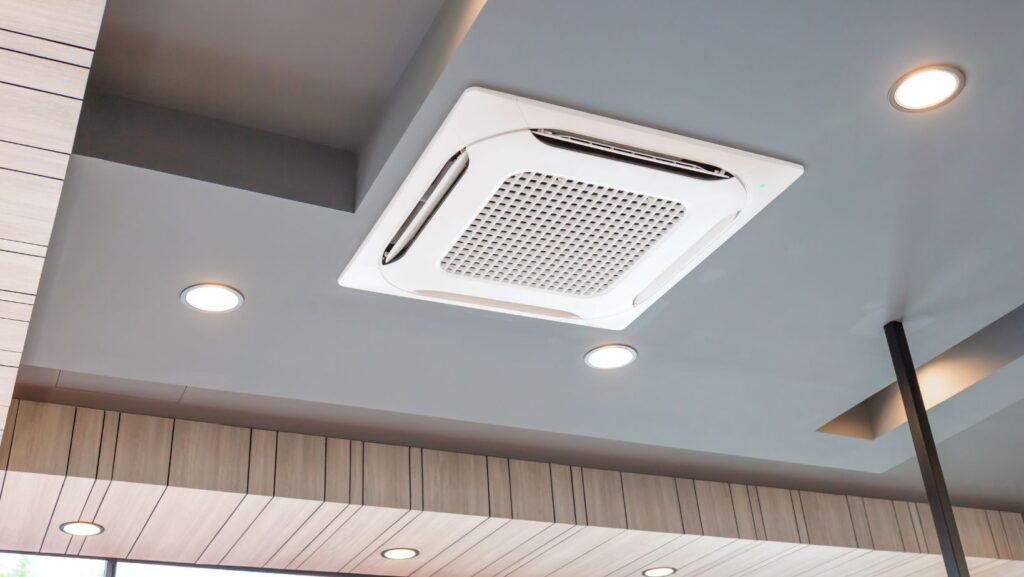
Creating the perfect indoor environment involves many factors, but one of the most crucial is achieving the right temperature. AC or Air Conditioning systems are pivotal in ensuring comfort, especially during the hotter months. Understanding the different types of AC units, their benefits, and the latest technological advancements can help make an informed decision.
There are several air conditioner systems, each with unique features and applications. Here is a closer look at the most common ones:
Central AC Systems
These AC systems are designed to cool entire homes or buildings. These systems utilize a network of ducts to distribute cool air throughout various rooms. Central AC units are known for their efficiency and ability to maintain a consistent temperature across large areas. They are ideal for homes with several rooms and buildings with extensive floor plans.
Ductless Mini-Split Systems
Ductless mini-split systems are versatile and energy-efficient for cooling individual rooms or specific areas. These systems consist of an outdoor compressor unit connected to more than one indoor air handler. Ductless mini-splits are known for their ease of installation and ability to provide zoned cooling, allowing different temperature settings in various rooms.
Window Air Conditioners
Window air conditioners are famous for cooling single rooms or small spaces. These units are installed in a window or a custom opening in a wall. Window ACs are relatively inexpensive and easy to install, making them a practical option for apartments or smaller homes. However, they may not be suitable for larger areas or homes with multiple rooms.
Portable Air Conditioners
Portable air conditioners offer a flexible cooling solution that can be moved from room to room. These units have a hose that vents hot air through a window or opening. Portable ACs are ideal for temporary cooling needs or when a permanent installation is not feasible. They are generally less efficient than other types of AC units and may be noisier.
Benefits of Air Conditioning Systems
Air conditioning systems offer numerous benefits beyond just cooling the air. Here are some key advantages:
Improved Air Quality
Modern AC systems have filters that remove dust, pollen, and other airborne particles, significantly improving indoor air quality. This is particularly beneficial for individuals with allergies or respiratory conditions, as cleaner air reduces the risk of irritation and illness.
Enhanced Comfort
AC systems provide a comfortable indoor environment by regulating temperature and humidity. Consistent temperature control helps prevent overheating during summer and creates a pleasant living or working space. Proper humidity control also helps reduce the growth of mold and mildew.
Increased Energy Efficiency
Advancements in AC technology have led to the development of energy-efficient units that consume less electricity while providing superior cooling performance. Moreover, when considering your cooling options, it’s beneficial to explore texas power choice to ensure you select an energy plan that complements the efficiency of your new AC unit, further maximizing your cost savings and environmental benefits.
Technological Advancements in Air Conditioning
The air conditioning industry has seen significant technological advancements in recent years.

These innovations have improved efficiency, convenience, and overall performance. Here are some notable developments:
Smart Thermostats
Smart thermostats allow users to remotely control their air conditioning systems using a smartphone or other connected device. These thermostats can learn usage patterns and adjust settings automatically for optimal energy efficiency. Features such as geofencing and voice control further enhance convenience and comfort.
Inverter Technology
Inverter technology has revolutionized the way AC operates. Unlike traditional AC units that cycle on and off, inverter ACs adjust the compressor speed to maintain a consistent temperature. This results in more efficient cooling, reduced energy consumption, and quieter operation. Inverter air conditioners are ideal for maintaining a steady indoor climate without significant fluctuations.
Eco-Friendly Refrigerants
Using eco-friendly refrigerants in air conditioning systems has become increasingly important in reducing environmental impact. Newer AC units utilise refrigerants such as R-32, which have low global warming potential than older refrigerants like R-22. Switching to eco-friendly refrigerants helps protect the ozone layer and reduce greenhouse gas emissions.
Upgrading to a New Air Conditioning System
If an existing air conditioner system is outdated or no longer efficient, upgrading to a new unit can offer several benefits. Modern air conditioners are designed with advanced features that enhance comfort, efficiency, and environmental friendliness. When choosing a new system, consider factors like size of space, energy efficiency ratings, and the specific cooling needs.

Choosing the right air conditioning system is essential for creating a comfortable indoor environment. Understanding the different types of AC units, their benefits, and the latest technological advancements makes it possible to make an informed decision that meets specific cooling needs. Regular maintenance and timely upgrades can further enhance the performance and efficiency of the system, ensuring a pleasant and comfortable living or working space.










